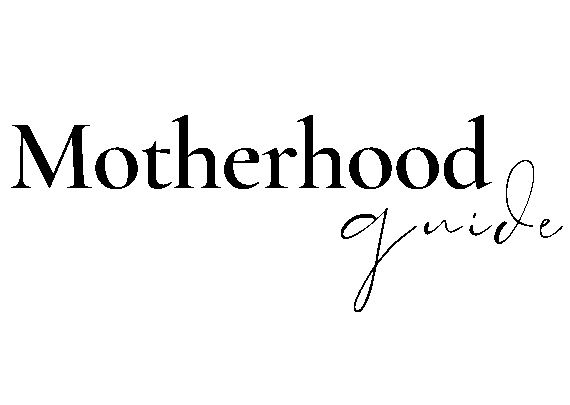Motherhood Challenges: Supermoms Do Cry

Motherhood Challenges: Breaking the Supermom’s Myth
Yesterday, I had a deep chat with one of my closest friends. She’s a mom of two little boys, going through the tough parts of motherhood challenges. She’s not getting enough sleep, her body is sore from non-stop nursing, and more than anything, she’s upset because her husband doesn’t seem to understand all the scale of her motherhood challenges and how much she’s giving. She feels like he isn’t showing enough care or empathy. She wished he would just get it without her having to say anything. Don’t we all wish for the same?
As we talked about her feelings, something important but often uncomfortable to acknowledge came up: we’re ignoring the fact that men and women are different. We’re wired differently. Women, through evolution, have developed a natural ability to nurture and juggle many things at once. Men, on the other hand, tend to focus more on clear-cut tasks or fixing problems. It’s not that her husband doesn’t care, he just might not be picking up on the unspoken signals of how exhausted she really is and what support she expects with her early motherhood challenges.
Superwoman Syndrome: I Don’t Need Help, I Can Do It All Myself
Instead of waiting for her husband to magically understand, I suggested she simply ask for help. She listened, a little hesitant, as if asking for help made her less capable. It’s something many women struggle with, the feeling that to be a “good” mom or partner, we have to handle everything perfectly, without ever showing how tired or overwhelmed we really are.
This belief, often called “superwoman syndrome,” makes it hard to admit when we need help. But this is where many women get stuck. We think that if we ask for help, we’re not doing our job well enough. The truth is, asking for help is a sign of strength, not weakness. It doesn’t mean you’re not doing a great job, it just means you’re human.
The Science Behind Superwoman Syndrome and Motherhood Challenges
So many women, especially moms, feel pressure to do it all, to be the perfect mom, the perfect partner, and to keep everything running smoothly without breaking a sweat. It’s the idea that we have to be amazing at everything, even if it drains every bit of energy we have. There’s also a scientific side to it. Women, especially new moms, often feel a strong emotional connection to caregiving, thanks to a hormone called oxytocin, which is released during nursing and bonding with the baby. This can make them feel like they should be able to do it all, even when they’re completely worn out.
But the truth is, no one can keep going when they’re running on empty. Asking for help doesn’t make you any less of a supermom. It just means you care enough about yourself, and your family, to make sure you’re okay too.
Helping Men Understand the Motherhood Challenges
There’s this joke: It was just announced that the male version of Alexa will be released soon. It will be called Alex and you have to ask for the same thing ten times and wait 6 months for him to do it. And so, we all know, men often need things to be spelled out more clearly, not because they don’t care, but because they care about things we might not even think about. They want to help but might not realise what’s needed unless we tell them. It’s not that they’re ignoring us; they just don’t have the same empathy that’s built into us by nature to protect our kids.
Men aren’t as advanced at reading body language, and, let’s be honest, we aren’t helping them by repeating, “I’m fine,” or “I can manage.” When we ask for help, we’re actually explaining our struggles of motherhood and making it easier for them to relate. It opens the door to teamwork and understanding.
Creating a New Partnering Pattern: Speak Up, Don’t Assume
By the end of our conversation, I could sense my friend relaxing a bit. But to keep herself calmer, she needed to build a new pattern. At first we agreed she’d try to assume less and speak more.
She also decided to talk to her husband that evening, explaining exactly what kind of help she needs daily. For example, “I want two hours of time for myself every two days where I can do something outside and won’t be interrupted (running errands doesn’t count!); or “I want an hour for my pilates workout” or “I’d love a professional massage every now and then. I love it when you rub my back, but I need something that really relaxes my muscles and tones my skin.”
We also talked about starting small, asking for one or two key things first, and once those are part of the routine, she could add more if needed.
Motherhood Was Never Meant to Be Done Alone
Throughout human history, women took care not only of their children but also of each other. People lived in tribes or communities, with clear roles for supporting one another. Times have changed, villages have shrunk, and women’s roles have evolved, but one thing remains the same: motherhood challenges get better with help. If your mom, sisters, or friends don’t live nearby, you have to learn to rely more on your partner and help them to be your tribe. You don’t have to be a superwoman to be a wonderful mom. In fact, acknowledging the motherhood challenges are real and asking for help shows your kids that it’s okay to rely on others, that no one has to do it all alone.
This morning, my friend sent me a thank-you message… along with a selfie from the massage salon! 😊
Nodding While Reading? CONTACT ME FOR YOUR FIRST MOTHERHOOD SESSION











